-
Dnapaternitytesting
DNA Paternity Testing – Your Trusted DNA Testing Partner
Peace Of Mind DNA Paternity Testing (Non-Legal)
A “peace of mind paternity test” is a type of DNA test that is used to determine the biological relationship between a presumed father and a child. This test is typically not used for legal purposes but rather for personal knowledge and reassurance.
Non-invasive prenatal paternity tests, also known as NIPP, are performed using a simple blood sample from the mother and a cheek swab from the potential father .This test can be performed as early as the 7th week of pregnancy. The test analyzes free-floating fetal DNA from the mother’s plasma and compares it to the potential father's DNA It's safe for both mother and fetus.
An at-home DNA paternity test is a private, non-legal genetic test that allows individuals to determine biological parentage for personal knowledge only. Unlike court-admissible tests, these kits are self-administered and provide quick, confidential results without requiring a lab visit.
In cases where the alleged father is unavailable for testing, advanced DNA testing methods can be used to determine paternity by testing the alleged father’s blood relatives. This could include siblings ( Siblingship), aunts, uncles ( Avuncular), or grandparents (Grandparentage). These tests can provide important information for legal matters, personal knowledge, or medical history.
- 🔹 Key Benefits of a Non-Legal DNA Paternity Testing
- 🔹Common Uses for Non-Legal DNA Tests
- How Does a Non-Legal Paternity Test Work?
- 🔹 Who Should Get a Peace of Mind Relationship DNA Test?
✔ Self-Administered – Easy cheek swab collection at home (no lab visit required).
✔ Fast & Confidential – Results in 3–5 business days, shared only with you.
✔ High Accuracy – 99.9%+ probability of paternity (when performed correctly).
✔ Affordable – Typically costs 100–100–300, much cheaper than legal tests.
✔ No ID Required – Unlike legal tests, no proof of identity is needed.

🔹 Peace of Mind – Confirm biological relationships privately.
🔹 Family Curiosity – Answer questions about paternity, siblingship, or grandparentage.
🔹 Prenatal Testing – Some labs offer non-invasive prenatal paternity tests (using the mother’s blood).
🔹 Ancestry & Genealogy – Some tests include ethnicity estimates.

Step 1: Order a Test Kit Online
Choose a reputable lab (AABB accreditation recommended for accuracy).
The kit is shipped discreetly to your home.
Step 2: Collect DNA Samples
Use cheek swabs to collect DNA from the alleged father and child (mother’s sample optional but improves accuracy).
Step 3: Mail Samples Back to the Lab
Use the prepaid return envelope included in the kit.
Step 4: Receive Results Online or by Email
Most companies provide secure digital results within 3–5 days.
Some offer expedited processing (24–48 hours for an extra fee).

✔ Individuals unsure about biological family ties
✔ Parents wanting private confirmation before legal steps
✔ Adoptees or donor-conceived individuals exploring ancestry
✔ Families resolving personal doubts without court involvement
🔹 Limitations to Consider
❌ Not valid for court, immigration, or child support (requires a legal DNA test).
❌ Self-collection risks contamination (must follow instructions carefully).
❌ No ID verification (results are for personal use only).


Non-Invasive Prenatal Collection Sample
Non-invasive prenatal paternity tests, also known as NIPP, are performed using a simple blood sample from the mother and a cheek swab from the potential father .This test can be performed as early as the 7th week of pregnancy. The test analyzes free-floating fetal DNA from the mother’s plasma and compares it to the potential father's DNA It's safe for both mother and fetus.

At-Home Paternity Test (Informational Only)
An at-home DNA paternity test is a private, non-legal genetic test that allows individuals to determine biological parentage for personal knowledge only. Unlike court-admissible tests, these kits are self-administered and provide quick, confidential results without requiring a lab visit.

Relationship DNA Paternity Testing Collection Sample (Informational)
In cases where the alleged father is unavailable for testing, advanced DNA testing methods can be used to determine paternity by testing the alleged father’s blood relatives. This could include siblings ( Siblingship), aunts, uncles ( Avuncular), or grandparents (Grand parentage). These tests can provide important information for legal matters, personal knowledge, or medical history.
Court Admissible DNA Paternity Testing (Legal) AABB-Accredited Labs: Ensuring your results are accurate and accepted by courts
A court-admissible DNA paternity test is a legally recognized genetic test used to establish or disprove biological parentage in legal cases, such as child custody, inheritance disputes, immigration, or child support. Unlike at-home DNA tests (which are for personal knowledge only), a court-admissible test follows strict legal procedures to ensure accuracy, integrity, and authenticity.
A legal prenatal paternity test is a court-approved DNA test performed before birth to determine biological fatherhood for legal purposes. Using maternal blood samples (non-invasive) or clinical procedures (CVS/amniocentesis), this test provides legally valid results without risking the pregnancy.
Court admissible DNA tests follow a strict chain-of-custody process with witnessed DNA collection, ensuring that no sample tampering can occur. These tests are often used in legal proceedings, such as child support cases, custody disputes, or inheritance claims. The lab must be AABB aacredited for the court to accept DNA Paternity results.
When standard paternity testing isn't possible, a legal relationship DNA test can prove siblingship, grandparentage, or other familial connections for court cases. These tests follow the same rigorous chain-of-custody standards as paternity tests.
- 📌 Common Legal Uses:
- 🔹 Key Benefits Court-Admissible Paternity Testing for Legal Purposes
- Court-Admissible Relationship DNA Test
Child support/custody cases
Social Security or inheritance claims
Birth certificate corrections
Adoption or foster care proceedings

✔ AABB-Accredited Lab – Required for legal validity
✔ Supervised DNA Collection – Performed by an approved professional
✔ Government ID Verification – Prevents fraud or misidentification
✔ Notarized Results – Directly admissible in family court
✔ 99.99%+ Accuracy – Industry-leading genetic analysis

✔ Court-Approved Methodology – Uses 16-21 genetic markers for precision
✔ Supervised Sample Collection – Neutral third party verifies identities
✔ Legal Documentation – Results include notarized statement of relationship probability
📌 Typical Applications:
Immigration petitions for extended family
Inheritance or estate disputes
Child custody cases with missing parents

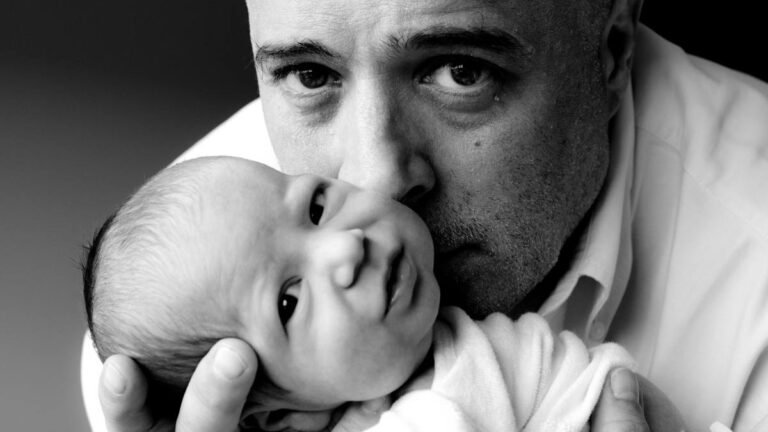
Non-Invasive Prenatal DNA Paternity Testing
Non-invasive prenatal paternity tests, also known as NIPP, are performed using a simple blood sample from the mother and a cheek swab from the potential father .This test can be performed as early as the 7th week of pregnancy. The test analyzes free-floating fetal DNA from the mother’s plasma and compares it to the potential father's DNA It's safe for both mother and fetus.
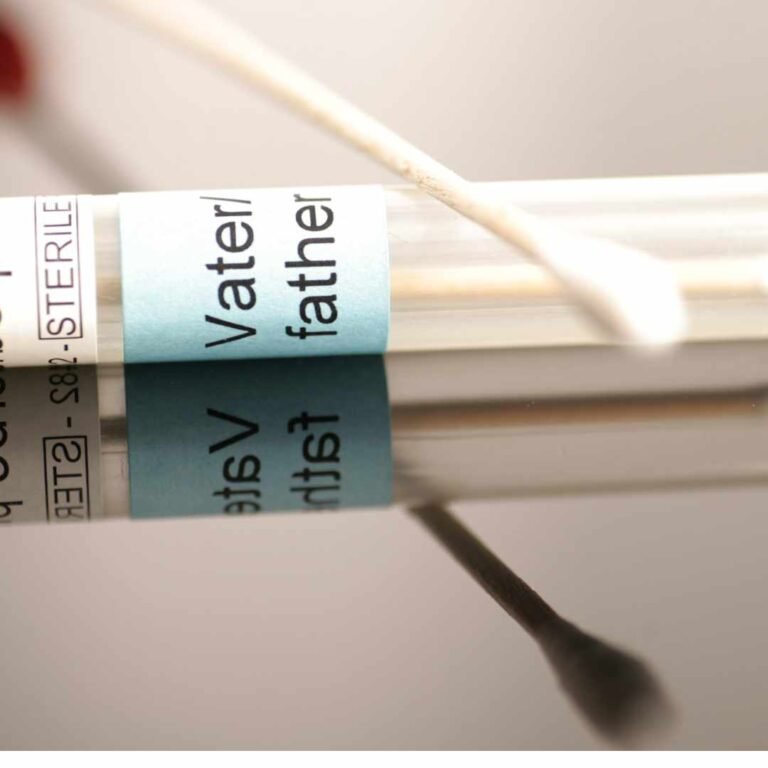
Court Admissible DNA Collection Sample
Court admissible DNA tests follow a strict chain-of-custody process with witnessed DNA collection, ensuring that no sample tampering can occur. These tests are often used in legal proceedings, such as child support cases, custody disputes, or inheritance claims. The lab must be AABB aacredited for the court to accept DNA Paternity results.

Relationship DNA Paternity Testing
In cases where the alleged father is unavailable for testing, advanced DNA testing methods can be used to determine paternity by testing the alleged father’s blood relatives. This could include siblings ( Siblingship), aunts, uncles ( Avuncular), or grandparents (Grandparentage). These tests can provide important information for legal matters, personal knowledge, or medical history.
Immigration DNA Paternity Testing (Legal & Non Legal)
An immigration DNA paternity test is a legally recognized genetic test used to prove a biological relationship between a petitioner (e.g., a U.S. citizen or permanent resident) and a beneficiary (e.g., a child or parent seeking a visa or green card). When documentary evidence (like birth certificates) is missing, incomplete, or questioned, U.S. Citizenship and Immigration Services (USCIS), U.S. embassies, and consulates may require a DNA test to confirm a claimed family relationship.
A prenatal paternity test for immigration is a non-invasive DNA test performed before birth to establish paternity for legal and immigration purposes. This test analyzes the mother’s blood (containing fetal DNA) and the alleged father’s DNA, providing court-admissible proof of biological relationship.
In cases where the alleged father is unavailable for testing, advanced DNA testing methods can be used to determine paternity by testing the alleged father’s blood relatives. This could include siblings ( Siblingship), aunts, uncles ( Avuncular), or grandparents (Grandparentage). These tests can provide important information for legal matters, personal knowledge, or medical history.
Court admissible DNA tests follow a strict chain-of-custody process with witnessed DNA collection, ensuring that no sample tampering can occur. These tests are often used in legal proceedings, such as child support cases, custody disputes, or inheritance claims. The lab must be AABB aacredited for the court to accept DNA Paternity results.
- 📌 When Is It Needed?
- 🔹 Key Benefits Court-Admissible Paternity Testing for Immigration
- Court-Admissible Relationship DNA Test (Immigration)
Father is a U.S. citizen/permanent resident sponsoring an unborn child
Missing or disputed paternity documentation
Expedited immigration cases requiring early proof

✔ Safe & Non-Invasive – No risk to mother or baby (no amniocentesis needed).
✔ Available After 8 Weeks Pregnancy – Early confirmation for immigration cases.
✔ AABB-Accredited & Legally Valid – Accepted by USCIS and embassies.

✔ Legally Binding Results – Valid for court and government use.
✔ Supervised Sample Collection – Ensures no tampering.
✔ High Accuracy – Uses advanced genetic analysis.
📌 When Is It Needed?
Immigration petitions for extended family
Inheritance disputes requiring biological proof
Child custody or adoption cases
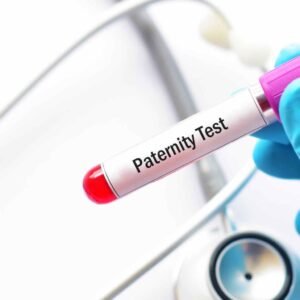

Non-Invasive Prenatal Paternity DNA Testing
A prenatal paternity test for immigration is a non-invasive DNA test performed before birth to establish paternity for legal and immigration purposes. This test analyzes the mother’s blood (containing fetal DNA) and the alleged father’s DNA, providing court-admissible proof of biological relationship.
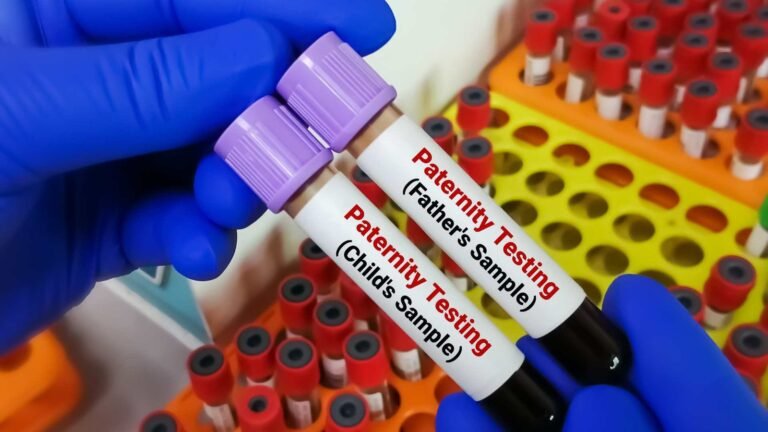
Court Admissible DNA Paternity Testing
Court admissible DNA tests follow a strict chain-of-custody process with witnessed DNA collection, ensuring that no sample tampering can occur. These tests are often used in legal proceedings, such as child support cases, custody disputes, or inheritance claims. The lab must be AABB aacredited for the court to accept DNA Paternity results.

Relationship DNA Paternity Testing
A court-admissible relationship DNA test is used to legally confirm family ties (such as siblings, grandparents, or aunts/uncles) when a direct paternity test isn’t possible. These tests follow legal chain-of-custody procedures and are accepted in immigration, inheritance, and custody cases.
Non-Legal vs. Legal DNA Paternity Testing: Key Differences
|
Features
|
Court-Admissible Test
|
At-Home (Informational) Test
|
|---|---|---|
|
Legal Validity
|
✅ Yes
|
❌ No
|
|
Id Verification
|
✅ Required
|
❌ Not required
|
|
Sample Collector
At our offices or mobile services
|
✅ Neutral professional
|
❌ Self-collected
|
|
Chain of Custody
|
✅ Strictly followed
|
❌ Not applicable
|
|
Use in Court
|
✅ Accepted
|
❌ Not accepted
|
|
Turnaround Time
|
3–5 days
|
3–5 days (sometimes longer for legal processing)
|
|
Cost
|
$100–300
|
$400–800+
|

Appointment Only Services

General Questions About Paternity Testing
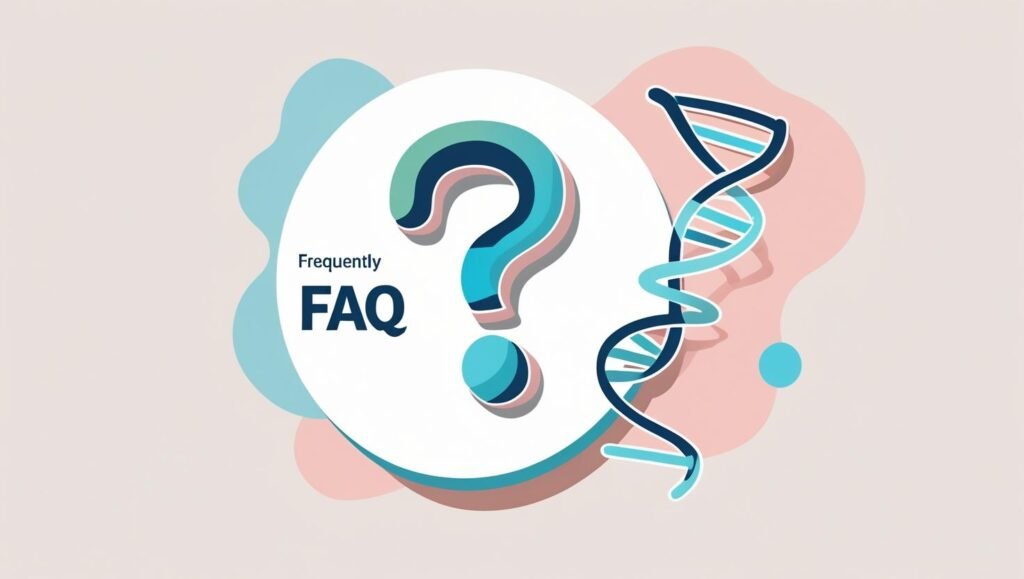
Dna Paternity Testing
A DNA paternity test compares a child’s genetic profile with an alleged father’s to determine biological parentage. Results are 99.9%+ accurate for inclusions and 100% conclusive for exclusions.
The test analyzes STR (Short Tandem Repeat) markers in DNA from cheek swabs or blood samples. Laboratories examine 16–21 genetic loci to calculate the probability of paternity.
No. Legal tests require verified sample collection from the start. You’d need to retest.
Yes, via:
Non-Invasive Prenatal Paternity (NIPP) Test (After 7 weeks gestation, using mother’s blood)
Invasive Methods (CVS/amniocentesis, higher risk)
How accurate are at-home paternity tests?
A: Just as accurate as legal tests (99.9%+) if collected properly. However, they cannot be used in court.
Q: Can I test without the alleged father knowing?
A: Ethically controversial. Some labs allow discreet samples (e.g., toothbrush, hair), but legal tests require consent.
Q: How long do results take?
A: Typically 3–5 business days after the lab receives samples. Expedited options (24–48 hrs) may cost extra.
Ethically controversial. Some labs allow discreet samples (e.g., toothbrush, hair), but legal tests require consent.
Yes. Sibling DNA tests compare genetic markers to determine if two individuals share:
Full siblings (same mother and father)
Half-siblings (one common parent)
Q: Are relationship tests court-admissible?
A: Only if performed with legal chain of custody.
Grandparent or avuncular (aunt/uncle) tests can indirectly establish paternity.
Only if performed with legal chain of custody.
Rarely. Some child support cases may qualify for state assistance.
Yes. Many labs offer international kits with local collection partners.
Postmortem testing is possible using:
Archived tissue samples
Hair/toothbrush (lower accuracy)
No. Identical twins share 100% identical DNA.
Prenatal Paternity Testing
Yes, via:
Non-Invasive Prenatal Paternity (NIPP) Test (After 7 weeks gestation, using mother’s blood)
Invasive Methods (CVS/amniocentesis, higher risk)
NIPP is 100% safe (no risk to fetus). Invasive methods carry a slight miscarriage risk.
Only if performed under legal chain of custody at an AABB lab.
Ethically controversial. Some labs allow discreet samples (e.g., toothbrush, hair), but legal tests require consent.
Grandparent or avuncular (aunt/uncle) tests can indirectly establish paternity.
Rarely. Some child support cases may qualify for state assistance.
Results & Interpretation ,Privacy & Confidentiality
“Probability of Paternity: 99.99%” (inclusion)
“Excluded as biological father: 0%” (exclusion)
You may request re-testing (additional fees apply). Courts may order a second legal test.
Extremely unlikely if performed by an accredited lab. Errors usually stem from:
❌ Sample mix-ups
❌ Fraudulent participation
Only you (for at-home tests). Legal tests are shared with:
Courts
Government agencies (if applicable)
A: Typically 3–5 business days after the lab receives samples. Expedited options (24–48 hrs) may cost extra.
Most labs destroy samples after testing unless you authorize storage.
No, unless required for a legal case.